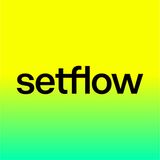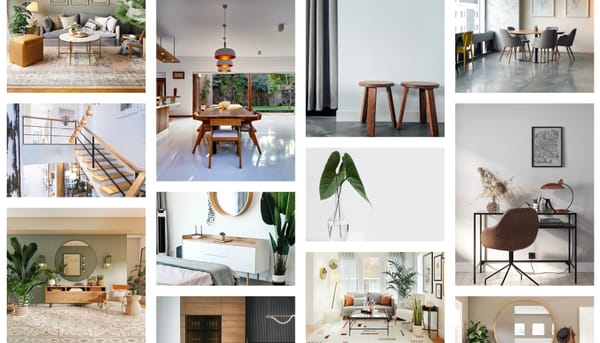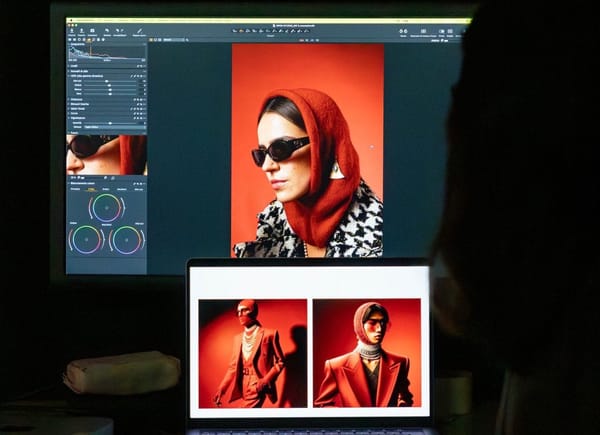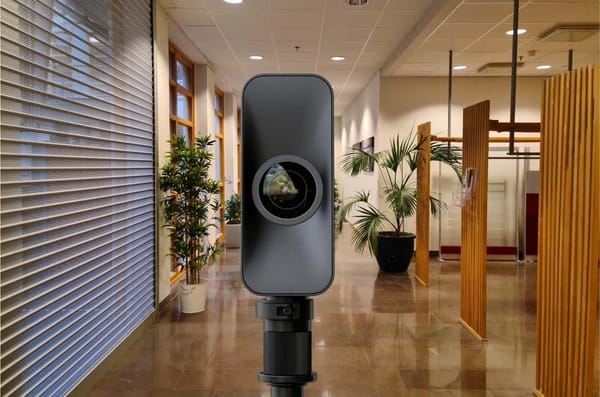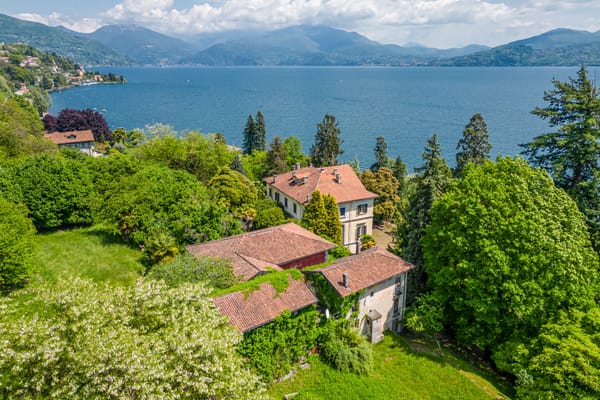How to search aesthetics.
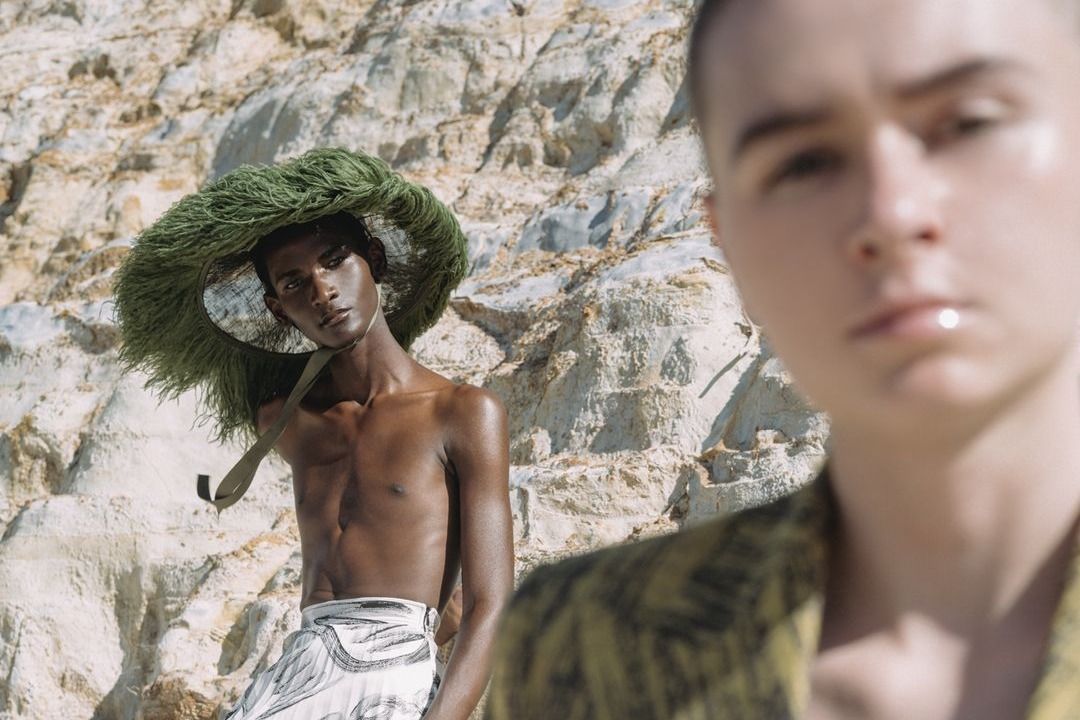
We asked two photographers from Setflow, the new all-in-one e-commerce platform for photoshoot management launched by Wesual, to tell us about how they see photography and how they live the creative process, which starts from research for images and in conversation with the client.
We want to introduce Andrea Baioni and Luciana Lorizzo, this month's two Setflow talents.
1- What visual cultural references have influenced your way of photography and the evolution of your stylistic research?
AB: Over time, they have changed a lot. Whereas in the beginning, they were somewhat random photographs, which depended more on the books I could find in the library, bookstore, or online! Now they are more of a dim sum of styles and names. Paolo Roversi - for the light and approach to the "studio" -, Nick Knight - for the experimentation - and Tim Walker - for teamwork and magnificent sets - have remained as cornerstones in my imagination of what it means to work as a photographer. Had I not studied them early in my career, I probably would be a different photographer.
LL: First and foremost, photos of my grandparents, archival photos, and photos of yesteryear. Every now and then, if I have a chance to get my hands on old photos of my grandparents, I do it with liberty and inspiration, which is different each time because what I look for and what I then find is always different and can only enrich my visual research. Books, photography exhibitions, and undoubtedly digital plays a key role, so social platforms such as Behance, Pinterest, and Instagram provide so much research input.
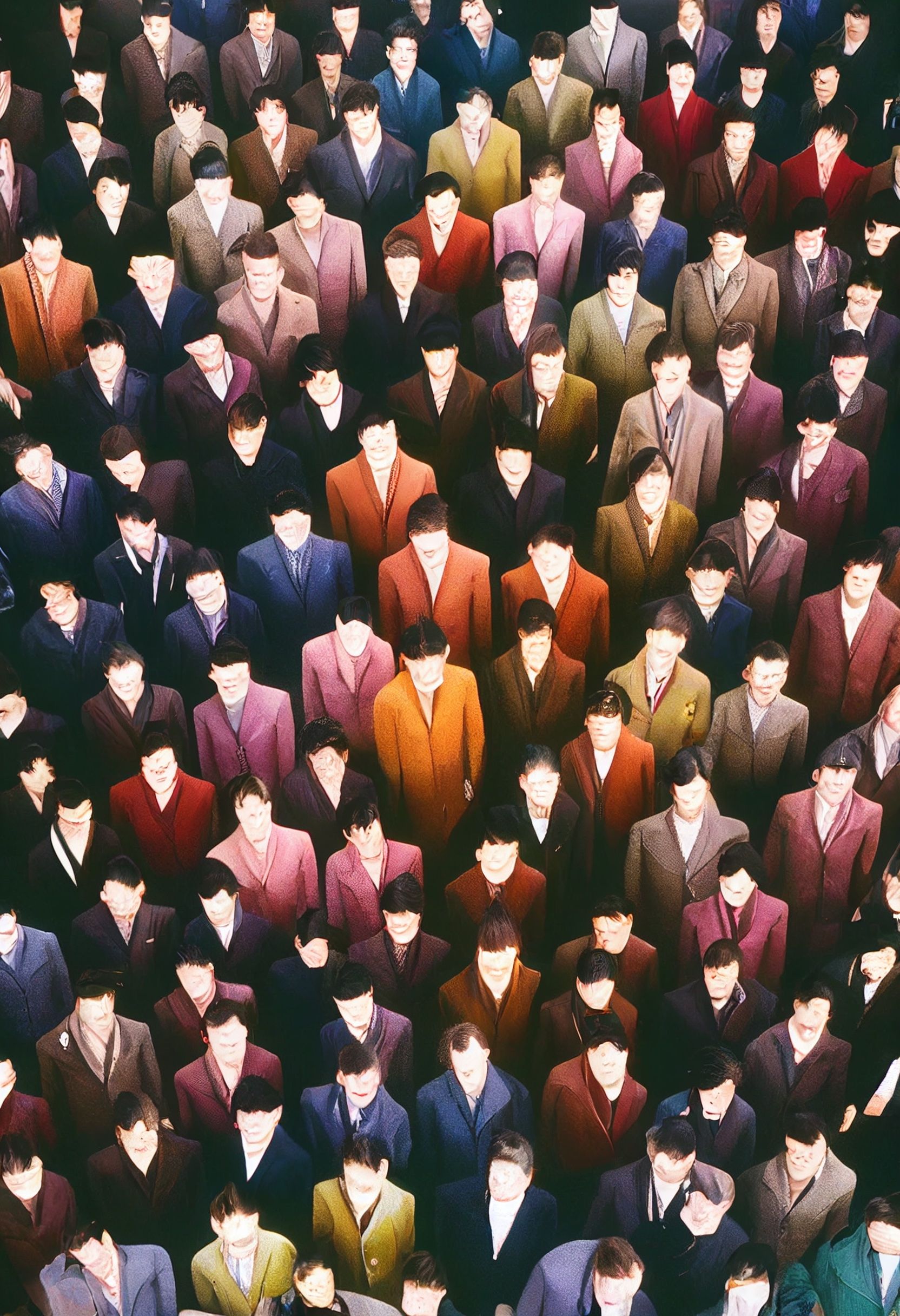
2- Where does your research start when you are starting a new project?
AB: Generally, if it's a commercial project, I ask the client what their references are, and accordingly, I prepare a mood board to see how much we are aligned. From there, then you research a little more in detail what you want to achieve in the shoot if there is time with the help of some sketches. The references tend to be for this kind of work and are reasonably standard and contemporary, so a look around on IG among those I follow is enough and usually goes a long way.
If, on the other hand, it is a personal project, since it often involves experimentation, I start with an idea that has tended to come to me sideways, reading cues here and there that I’ve found interesting, and then move on to more and more theoretical research on the subject that interests me. The resulting practical research is causal, in the sense that by experimenting first, I do somewhat random things, and given the results, I only outline subsequently what I would like to get to. My latest work later brought into the exhibition with Photovogue on AI, was born that way: a germinal interest in something that was beginning to be talked about on Reddit, research into how neural networks work, the first attempts with GANs, and then a hybrid result that was given half by the results and half by the then shortcomings of the medium.
LL: Good question! It depends on where my inspiration for the project came from, so what
input there was in the beginning: a memory, a social issue that touches me more than others at that moment, or aesthetics that I want to explore. Very often, however, I start by brainstorming (which lasts so long until I run out of ideas) and with social-historical research on the theme that I want to
explore further. I research between the classic and its reinterpretation, trying to find the "missing link" because I believe that it is out there! At this exact junction, the originality of a theme; a new way of seeing and understanding lies.
3- The project you haven't done yet?
AB: Any project that I can look at six months later and not find myself saying "today
I would have done it differently."
LL: There are many projects that I very often start but remain unfinished, partly because sometimes I find some of those projects dealing with topics that have strayed from my interests.
What I haven't realized yet is what I haven't thought of yet!
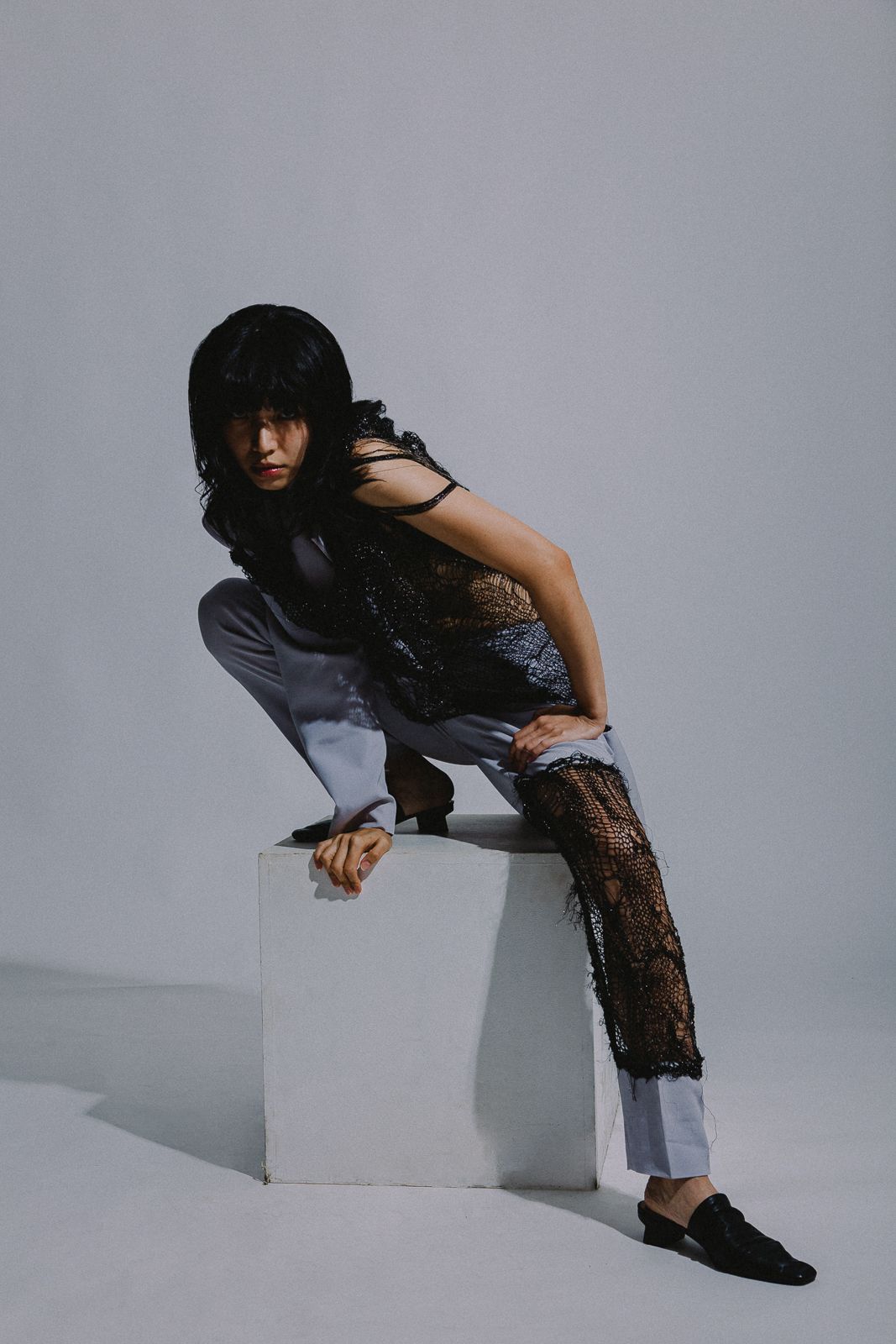
Andrea Baioni is a fashion photographer who lives in Milan and Johannesburg. He is represented by Lamppost and is a Certified Leica photographer.
Luciana Lorizzo is a fashion photographer based in Milan. In her work, she loves to experiment with dialogue and blend photography with a wide range of art forms.
